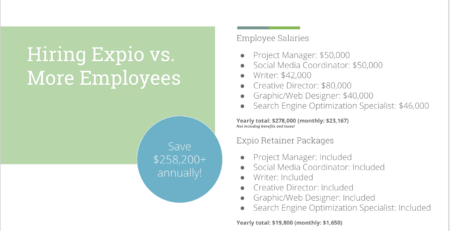Best Practices for HIPAA-Compliant Digital Marketing
When one small private clinic used a free online appointment scheduler, they didn’t think twice about the patient info collected until a data breach exposed hundreds of records. The fallout? Distrust, lost patients, regulatory headaches.
The lesson: Digital marketing in healthcare is a privacy minefield, and there’s no “gray area” with HIPAA. Expio steps in with a strong system, proven tools, rigorous partner vetting, airtight workflows. Our clients market with full confidence, safeguarding PHI at every turn and winning patient loyalty the right way.
Understanding HIPAA’s Core Requirements
HIPAA, the Health Insurance Portability and Accountability Act, defines strict standards for protecting protected health information, or PHI. These apply across all digital assets: websites, email campaigns, advertising, and even social media.
Key takeaways:
- Never collect PHI unless absolutely necessary. Build forms around minimum necessary data.
- Store PHI on encrypted, access-controlled systems. Never keep PHI in unsecured locations like Google Sheets or unencrypted email.
- Secure third-party vendors: Only partner with software or services that will sign a Business Associate Agreement (BAA).
Detailed standards can be reviewed on the official HHS HIPAA website
Actionable Steps for Compliance
1. Assess and Map Your Data Flows
- Identify every location where PHI is entered, stored, or transmitted including CRMs, forms, and marketing automation tools.
2. Use HIPAA-Safe Tools
- Prefer platforms built for healthcare (e.g., patient portal software or HIPAA-approved chatbots). Avoid generic email marketing tools for sensitive communications.
3. Audit Third-Party Relationships
- Does your agency, web host, or chat provider handle PHI? Demand BAAs from anyone with access to protected data.
4. Train Your Marketing Team
- Regularly review what constitutes PHI. Anything connected to care such as names, contact info, and treatment details must be treated with the strictest confidentiality.
5. Restrict Access Rigorously
- Ensure only the minimum necessary staff and vendors have access to PHI. Implement robust user authentication and activity logging.
6. Document Everything
- Maintain clear records of consent, approvals, audits, and any compliance updates.
Common Digital Mistakes (and How to Avoid Them)
- Unsecured contact forms: Use encrypted forms. Clearly explain what information is being collected.
- Improper use of remarketing: Don’t target ads based on specific health-related conditions or treatments.
- Copying generic marketing campaigns: Customize every campaign to minimize PHI exposure and maximize security.
Conclusion: Compliance Enables Trust and Growth
Those who view HIPAA as a marketing roadblock are missing an opportunity. Compliance builds trust with patients, encourages referrals, and positions your organization as an ethical leader.
Visit the official HHS HIPAA portal for ongoing updates and to double-check any compliance question.
Digital innovation is possible when grounded in responsibility and transparency. Contact Expio today to learn how compliance can be your secret marketing weapon.




Leave a Reply